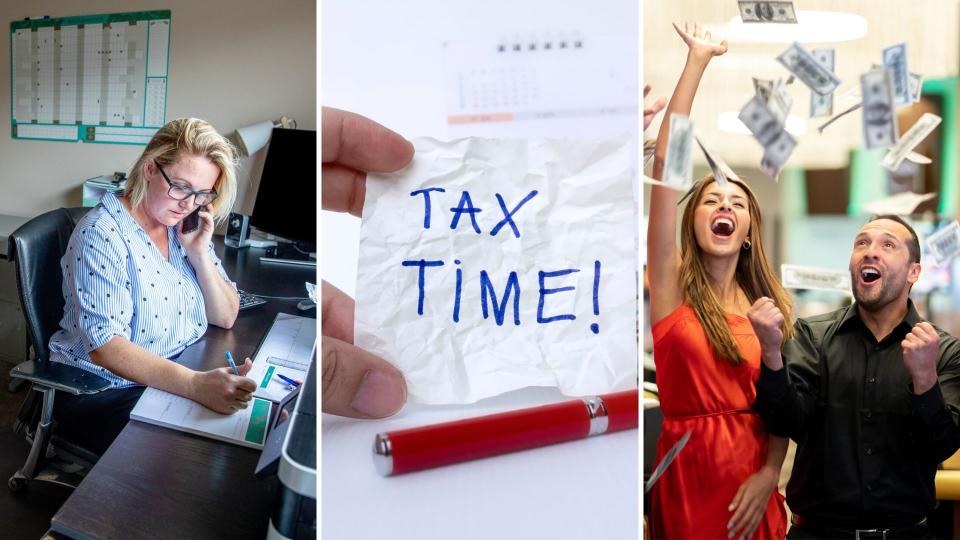Here's everything you need to know for tax time 2020

After a hectic year when you might've lost your job, gone on government assistance or just going stir-crazy from being trapped inside, tax time has rolled around.
Filling in your tax return is not a chore everyone enjoys, but for Australians that know what they're doing a nice financial boost could come their way.
And because you read Yahoo Finance, you'll be one of those people.
There is a lot more to understand this year because of all the working-from-home and government payouts. So here's all the info you need:
(This list will be updated regularly during the tax season, so please keep checking back)
If you don't know when tax returns are due
There are many different deadlines and milestones during tax season, so we've put them all in one place for you, covering the period from June to October inclusive.
And prepare before July 1 – there are two tasks you can do now that will make life a lot easier when you do your return later.
If you want to do your own tax return
Here is a checklist of potentially deductible expenses that you may not have thought of.
If you want to use an agent
Should you use a professional to do your taxes on your behalf? Here are the factors you need to consider before paying for such a service.
If you worked from home
Unlike other years, millions of people will be in this boat this tax season. One study claimed Australians could miss out on a $10 billion opportunity if they're not careful with how they treat their work-from-home expenses. Here is the advice from the Australian Taxation Office.
If you receive JobKeeper payments
Is the JobKeeper money taxable income or not? You need to be careful with this so you don't get burnt. The ATO has provided advice and so has a tax expert.
If you receive JobSeeker payments
Same question for JobSeeker payments – the question of whether it is taxable income will dramatically affect your return. Here's the answer.
If you withdrew some of your superannuation early
Many Australians ran into financial difficulties during the year and used the relaxed coronavirus rules to get their hands on some of their superannuation money early. If this is you, this is the advice on how that should be treated in your tax return.
If you run a business
If you run a business, there is a recent change from the government that could result in a nice gift for more than 2.2 million Australians.
If you run a self-managed superannuation fund (SMSF)
If you're the trustee of your own superannuation fund, here is some advice from a chartered accountant about how to report SMSFs on your tax return.
If you're a landlord
Investment properties could potentially have undergone much upheaval this year, with tenants possibly leaving or negotiating a lower rent. This is the advice from a chartered accountant on all the tricks and traps for landlords' tax returns.
If you don’t know how to lodge your tax return
You can either lodge your return through myGov, with a paper tax return form, or using a registered tax agent.
Here’s exactly how to lodge, and which way will see you receive your tax return the quickest.
If you don’t know when to lodge your tax return
While many of us might want to jump the gun on our tax returns, the Australian Taxation Office has made one thing clear: don’t lodge your tax return too early.
With the introduction of single touch payroll, income statements have replaced payment summaries, which means all the information is lodged digitally and automatically provided directly to the ATO.
But employers have until 31 July to finalise all the information in these statements.
When this is done, the income statement will be marked as ‘tax ready’. If it’s not ‘tax ready’, don’t lodge.
If you don’t know the laws are changing
As we go into the new financial year, some initiatives and schemes are set to end, while other laws will kick in on 1 July.
Here’s a run-down of what’s changing up when we enter the new financial year.
Follow Yahoo Finance Australia on Facebook, Twitter, Instagram and LinkedIn.

 Yahoo Finance
Yahoo Finance 
